University of Florida’s AI in Education Workshop
April 6, 3-6:30 p.m. ET
Overview
Driven by advances in technologies and computer sciences, artificial intelligence has drastically improved over the past decades. We are now at a tipping-point where AI can be used to help solve a variety of challenging educational issues, across multiple fields of study.
UF’s AI in Education workshop brings together 18 top researchers in the fields of Computer Science/AI, Learning Sciences and Instructional Design, and Computational Psychometrics to discuss the latest developments in the field of artificial intelligence.
Specifically, we invited the first three NSF-funded AI Research Institutes to discuss their foci and accomplishments over the past three years. The AI Institute for Student-AI Teaming (iSAT), the Engage AI Institute, and the AI Institute for Adult Learning and Online Education (AI-ALOE), each received approximately $20M to design, develop, and evaluate AI tools that can improve learning in various levels of education.
Additionally, we invited three well-known learning companies that use AI in their products: Duolingo, Khan Academy, and ASSISTments. Finally, we invited 10 top scientists whose work has been nationally and internationally recognized to discuss important topics around AI-in-Education. See the full list of presenters and other contributors below.
Workshop Structure
This 3.5 hour workshop will include:
- Presentations from AI Institutes and Learning Companies
- Important topics in AI-in-Education Panel Discussions (Breakout Rooms)
- Whole Group Discussion and Final Remarks
Outcomes
Presenters and Contributors
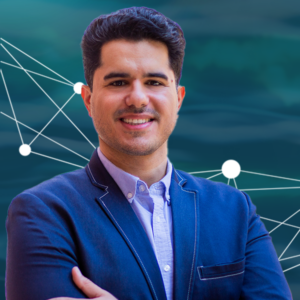
Dr. Seyedahmad Rahimi
Workshop Director
- Assistant Professor of Educational Technology, Institute for Advanced Learning Technologies at the University of Florida College of Education
- Director, Game-based Assessment & Measurement in Education Lab
- Director, AI in Education Workshop
More Information
Seyedahmad Rahimi, Ph.D., is an Assistant Professor of Educational Technology in the School of Teaching and Learning at the University of Florida. He is the director of Game-based Assessment & Measurement (GAME) Lab. Dr. Rahimi’s research focuses on assessing and fostering students’ 21st-century skills (e.g., creativity) and STEM-related knowledge acquisition (e.g., physics understanding). Toward that end, Dr. Rahimi designs, develops, and evaluates AI-powered, immersive learning environments (e.g., educational games) equipped with Stealth Assessment and Educational Data Mining, Learning Analytics, and Natural language Processing models. These learning environments can diagnostically assess students’ various competency levels, predict different outcomes, and act accordingly in real-time (e.g., adapt the game challenges to students’ level of competency or support students’ learning by triggering the appropriate learning supports). Dr. Rahimi is also actively researching various aspects of educational games (e.g., game mechanics, game difficulty, cognitive and affective supports, dashboard design, and incentive systems) and how they affect students’ motivation, performance, and learning.
Presenters
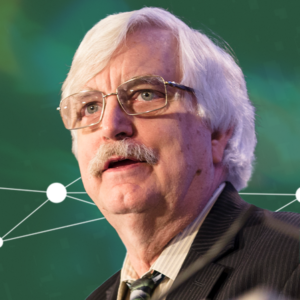
Dr. Chris Dede
Associate Director for Research
NSF AI Institute for Adult Learning and Online Education
More Information
Chris Dede is a Senior Research Fellow at the Harvard Graduate School of Education and was for 22 years its Timothy E. Wirth Professor in Learning Technologies. His fields of scholarship include emerging technologies, policy, and leadership. From 2001-2004, he was Chair of the HGSE department of Teaching and Learning. In 2007, he was honored by Harvard University as an outstanding teacher, and in 2011 he was named a Fellow of the American Educational Research Association. In 2020 Chris co-founded the Silver Lining for Learning initiative (https://silverliningforlearning.org). He is currently a Member of the OECD 2030 Scientific Committee and an Advisor to the Alliance for the Future of Digital Learning, sponsored by the Mohammed bin Rashid Global Initiative (MBRGI). Also, Chris is a Co-Principal Investigator and Associate Director for Research of the NSF-funded National Artificial Intelligence Institute in Adult Learning and Online Education. His most recent co-edited books include: Teacher Learning in the Digital Age: Online Professional Development in STEM Education; Virtual, Augmented, and Mixed Realities in Education; Learning engineering for online education: Theoretical contexts and design-based examples; and The 60-Year Curriculum: New Models for Lifelong Learning in the Digital Economy.

Dr. James Lester
Director
NSF AI Institute for Engaged Learning
More Information
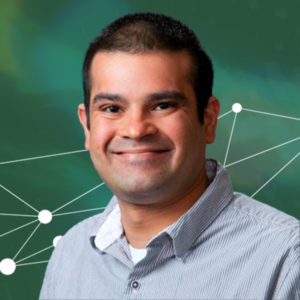
Dr. Sidney D’Mello
Principal Investigator
NSF AI Institute for Student-AI Teaming
More Information
Sidney D’Mello (PhD in Computer Science) is a Professor in the Institute of Cognitive Science and Department of Computer Science at the University of Colorado Boulder. He is interested in the dynamic interplay between cognition and emotion while individuals and groups engage in complex real-world activities. He applies insights gleaned from this basic research program to develop intelligent technologies that help people achieve to their fullest potential by coordinating what they think and feel with what they know and do. D’Mello has co-edited seven books and has published more than 300 journal papers, book chapters, and conference proceedings. His research has received 17 awards at international conferences and has been funded by numerous grants. D’Mello serves(d) as Associate Editor and on the Editorial Boards of 11 journals. He leads the NSF National Institute for Student-Agent Teaming (2020-2025), which aims to develop AI technologies to facilitate rich socio-collaborative learning experiences for all students. [CV] [Website] [Google Scholar] [Contact]

Dr. Peter Foltz
Executive Director
NSF AI Institute for Student-AI Teaming
More Information
Dr. Peter Foltz is Research Professor at the University of Colorado’s Institute of Cognitive Science and Executive Director of the National Science Foundation AI Institute for Student-AI Teaming. His work covers machine learning and natural language processing for educational and clinical assessments, large-scale data analytics, cognitive skills in reading and writing, team collaboration, and 21st Century skills learning, Much of his work has focused on NLP techniques for automatically analyzing the meaning of language through writing and speaking. He was a Founder and Chief Scientist at Knowledge Analysis Technologies, which was acquired by Pearson Education and then served as Vice President for Research at Pearson. He has served as the content lead for the framework development for Organisation of Economic Cooperation and Development’s (OECD) Programme for International Student Assessment (PISA) assessments, including the 2018 Reading Literacy assessment, the 2015 assessment of Collaborative Problem Solving, and a new assessment of reading literacy for developing countries.

Dr. Alina A von Davier
Chief of Assessment
Duolingo
More Information
Dr. Alina A von Davier is a psychometrician and researcher in computational psychometrics, machine learning, and education. Von Davier is a researcher, innovator, and an executive leader with over 20 years of experience in EdTech and in the assessment industry. She is the Chief of Assessment at Duolingo, where she leads the Duolingo English Test research and development area. She is also the Founder and CEO of EdAstra Tech, a service-oriented EdTech company. In 2022, she joined the University of Oxford as an Honorary Research Fellow, and Carnegie Mellon University as a Senior Research Fellow.
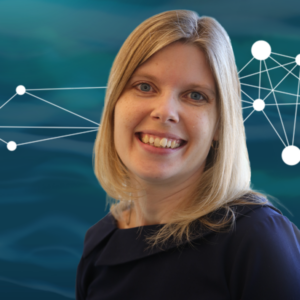
Dr. Kristen DiCerbo
Chief Learning Officer
Khan Academy
More Information
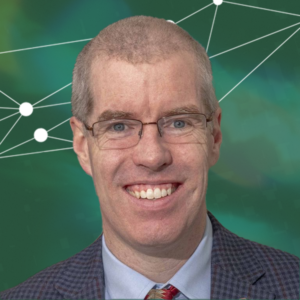
Dr. Neil T. Heffernan
William Smith Dean’s Professor of Computer Science
Worcester Polytechnic Institute
More Information
Dr. Neil Heffernan is William Smith Dean’s Professor of Computer Science and Director of the Learning Sciences & Technology program at Worcester Polytechnic Institute. He co-founded ASSISTments, a web-based learning platform, which he developed not only to help teachers be more effective in the classroom, but also so that he could use the platform to conduct studies to improve the quality of education. Professor Heffernan is passionate about educational data mining and enjoys supervising WPI students, helping them create ASSISTments content and features. Several student projects have resulted in peer-reviewed publications that compare different ways to optimize student learning. Professor Heffernan’s goal is to give ASSISTments to millions across the U.S. and internationally as a free service. In October 2016 Dr. Heffernan was asked to present at the White House on the reproducibility crisis in educational research and the need for pre-registration and open-data. In December 2016, the Heffernans presented at the White House for a second time on the SRI evaluation that found ASSISTments increased student learning by seventy-five percent. Heffernan has received national press from U.S. News, Scientific American, The New York Times, The Boston Globe, and NPR. Dr. Heffernan has written 100+ papers on learning analytics and over two dozen papers on the results of randomized controlled trials. Dr. Heffernan continues to work on machine-learning methods as it relates to improving student learning. WPI and The ASSISTments Foundation collaborate on many federally and philanthropically funded projects.
Contributors

Dr. Valerie Shute
Professor Emerita
Florida State University
More Information
Valerie Shute is a Professor Emerita in the Department of Educational Psychology and Learning Systems at Florida State University. She’s been involved with basic and applied research related to measurement, assessment, cognitive diagnosis, and learning from advanced instructional systems. Her general research interests hover around the design, development, and evaluation of learning–particularly related to 21st century competencies. Her specific work involves using games with stealth assessment to support learning—of cognitive and noncognitive knowledge, skills, and dispositions. Her research has resulted in numerous grants, journal articles, books, chapters in books (with 21,000 citations according to Google Scholar), as well as a patent (U.S. Patent #7,828,552: Method and System for Designing Adaptive, Diagnostic Assessments, 2010).

Dr. Danielle S. McNamara
Arizona State University
More Information
Director, Science of Learning and Educational Technology (SoLET) Lab, Arizona State
University
Professor, Department of Psychology, Arizona State University
Dr. McNamara develops educational technologies and conducts research to better understand cognitive processes of comprehension, learning, comprehension strategies, text coherence, and individual differences. Over the years, Dr. McNamara and her team have developed a number of educational technologies (e.g., iSTART, iSTART-ME, Coh-Metrix, and Writing-Pal). With decades of experience as a senior researcher in cognitive psychology, Dr. McNamara has solidified herself as one of the world’s premier researchers in her field. She has published hundreds of works including journal articles, books, book chapters, and conference proceedings. She has also been invited to deliver keynote addresses at annual conferences for Educational Data Mining, Learning Analytics and Knowledge, and the European Conference on Technology Enhanced Learning, to name a few. As such, Dr. McNamara was recently named the Founding and Executive Director of the Learning Engineering Institute at Arizona State University. In her research, Dr. McNamara is particularly interested in how the effects of educational technologies interact with individual differences and can be optimized for individual Learners.
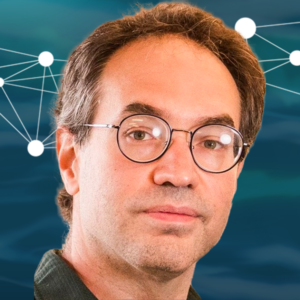
Dr. Ryan Baker
Associate Professor and Director of the Penn Center for Learning Analytics
University of Pennsylvania
More Information
Society, is currently serving as Editor of the journal Computer-Based Learning in Context, is Associate Editor of the Journal of Educational Data Mining, was the first technical director of the Pittsburgh Science of Learning Center DataShop, and currently serves as Co-Director of the MOOC Replication Framework (MORF). Baker has co-authored published papers with over 400 colleagues.
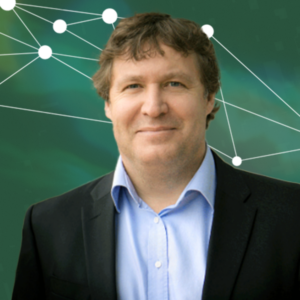
Dr. George Siemens
Professor and Director of the Center for Change and Complexity in Learning (C3L)
University of South Australia
More Information
Dr. George Siemens is an internationally renowned author, researcher, and theorist in the field of learning, knowledge management, and technology. Dr. Siemens is known for his theory of Connectivism. Connectivism is a theoretical framework for understanding learning in the digital age. Connectivism has been one of the most important theories taught and discussed, especially in comparison to Behaviorism and Constructivism in education. In addition, Siemens was a pioneer in the early development of massive online open courses (MOOCs). The concept of MOOCS developed by Siemens, and the evolving MOOCS platforms by industries such as Cousera, Edx, or Udacity have since exerted a significant influence on adult learning. In recent years, Siemens has led several other initiatives focusing on learning analytics (e.g., SoLAR
https://www.solaresearch.org/about/) and artificial intelligence in education (e.g., the Global Research Alliance for AI in Learning and Education, https://graile.ai/). Dr. Siemens obtained his PhD from University of Aberdeen in Scotland. In addition, he has received honorary doctorates from the Universidad de San Martin de Porres in Peru and the University of the Fraser Valley in Canada. Siemens is a professor at University of South Australia and professor of practice at the University of Texas Arlington

Dr. Diego Zapata-Rivera
Distinguished Presidential Appointee and Director
Learning and Assessment Foundations and Innovations (LAFI) Research Center / Educational Testing Service (ETS)
More Information
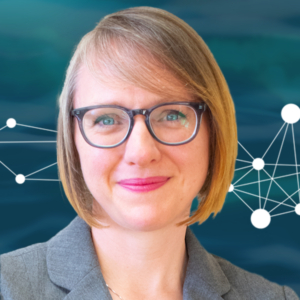
Dr. Kristy Boyer
Professor
University of Florida
More Information
Kristy Elizabeth Boyer is a Professor in the Department of Computer & Information Science & Engineering and the Department of Engineering Education at the University of Florida. Her research focuses on how natural language dialogue and intelligent systems can support human learning across educational contexts including within and outside the classroom. Her research group builds computational models of the processes and phenomena during dialogue and learning, and these models drive the adaptivity of intelligent systems. The computational models in turn shed light on effective strategies for supporting human learning. Her group develops systems that support individual and collaborative learning, including tutorial dialogue systems, intelligent tutoring systems, and game-based learning environments. Boyer holds a Ph.D. in Computer Science from North Carolina State University, an M.S. in Applied Statistics from the Georgia Institute of Technology, and a B.S. in Mathematics and Computer Science from Valdosta State University. She has been recognized with an NSF CAREER award and an NSF Graduate Research Fellowship.

Dr. Victor Lee
Associate Professor
Stanford Graduate School of Education
More Information

Dr. Lin Lin Lipsmeyer
Professor and Chair of Teaching and Learning
SMU Simmons School of Education & Human Development
More Information
Dr. Lin Lin Lipsmeyer is Professor and Department Chair of Teaching and Learning in the SMU’s Simmons School of Education & Human Development. Prior to coming to SMU, Lin was Professor of Learning Technologies and Director of the Texas Center for Educational Technology at the University of North Texas. Lin received her doctorate in Instructional Technology and Media from Teachers College Columbia University. Dr. Lin Lipsmeyer has conducted interdisciplinary research in mind, brain, and learning technology. Her research has resulted in over 110 scholarly publications including journal articles, books, and book chapters. In addition, she has been a PI, Co-PI, or researcher on multiple NSF and foundation grants bridging learning sciences, artificial intelligence, and STEAM learning. Lin also serves as the Development Editor-in-Chief of the Educational Technology Research and Development (ETR&D, https://www.springer.com/journal/11423), one of the top journals in education and educational research.

Dr. Richard Golden
Professor
University of Texas at Dallas
More Information
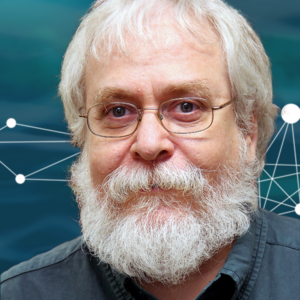
Dr. Russell Almond
Associate Professor
Florida State University
More Information
Russell Almond is an associate professor in the Department of Educational Psychology and Learning Systems in the College of Education at Florida State University His professional biography and curriculum viate (XHTML, PDF) are available on-line, as is a list of publications (both in html and as a BibTeX database). Russell has been a frequent contributer to the Uncertainty In Artificial Intelligence conference, and was a past chair of the Bayesian Applications workshop. Before coming to Florida State, Russell worked at Educational Testing Service and StatSci (later MathSoft and now Insightful) where he designed the Graphical-Belief software for building and evaluating graphical belief functions. Although this work was never formally released as a product, it has several interesting features which can be found in the link above. Russell has recently released an add-on export filter to JabRef for exporting bibtex databases as RTF files in APA format, the APAish package.

Dr. Rene Kizilcec
Assistant Professor of Information Science
Cornell University
More Information
Faculty at the Institute for Advanced Learning Technologies
At IALT, researchers from a variety of backgrounds bring a wide range of knowledge, needed to address tomorrow’s challenges. To cultivate wide-reaching implications for every member of our society, UF researchers are working at the intersection of data mining, computational psychometrics, machine learning and artificial intelligence to dramatically improve learning outcomes and to transform education, in both concept and practice.
Learn more about IALT faculty here: https://ialt.education.ufl.edu/faculty/
Workshop Agenda
Introduction
2:50 – 3:00 Zoom waiting room open
3:00 – 3:05 Welcome by the workshop’s director Dr. Rahimi
3:05 – 3:10 UF’s provost short presentation about UF’s AI initiative
Presentations (15 minutes each + 5 minutes Q&A)
3:10 – 3: 30 iSAT AI institute
3:30 – 3:50 Duolingo
3:50 – 4:10 Engage AI institute
4:10 – 4:20 10-minute break
4:20 – 4:40 Khan Academy4:40 – 5:00 AI Institute for Adult Learning and Online Education
5:00 – 5:20 ASSISTments
5:20 –5:25 5-minute break and transition to panel sessions
Panel discussions
5:25 – 6:15 Small-group panels
6:15 – 6:30 Large-group debriefings and final remarks
Event Videos
You can view videos below of the presentation portion of this event and the following panel sessions.

